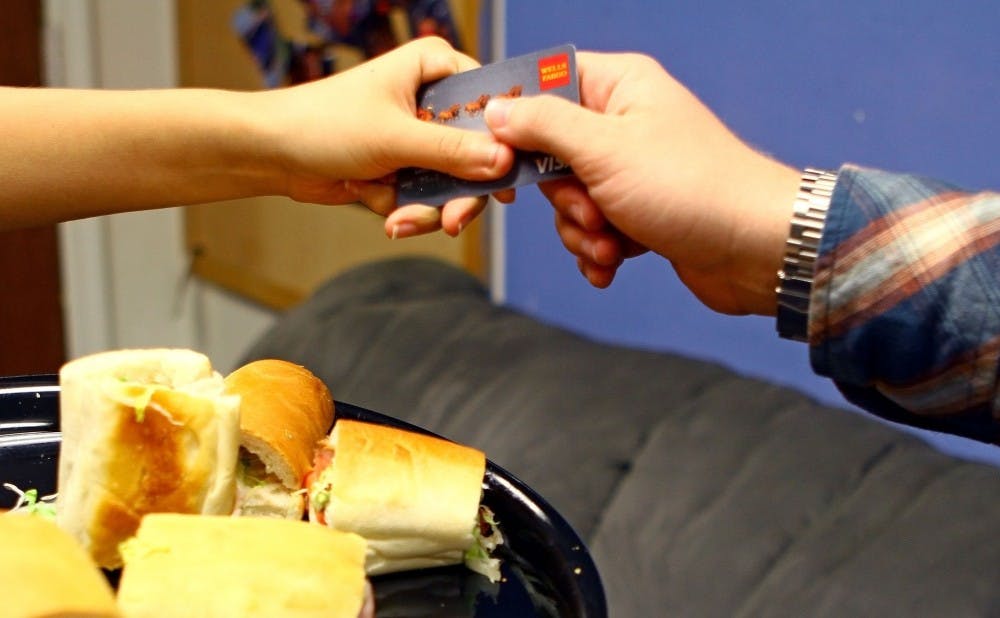The Durham Public Schools' Board of Education met on Monday to discuss Superintendent Eric Becoats’ misuse of his school district-issued credit card.
The district-issued credit card is meant to be used for business-related purchases, such as plane tickets and hotels. It was discovered that Becoats was using the card to purchase personal items without full documentation and explanation of his spending. The Board took away Becoats’ access to the card, and plans to discuss additional financial policies regarding credit card use in the future.
“The board has unanimously directed our school attorney working with staff to continue to review credit card charges, and whether other action including reimbursement of any charges needs to be taken,” said Heidi Carter, Chair of the Board of Education, in an open statement. “The credit card assigned to the superintendent’s office has been terminated by the Board.”
The records of expenditures show that Becoats spent $20,157.86 last year for purchases such as conferences, room service, limousines from the airport, workshop supplies and gifts.
Currently, the district does not have an official policy regulating credit card use. Following the meeting, Becoats made a statement regarding his future actions.
“We will continue to work on policies and procedures to enhance operations within the district, and I am going to continue to focus on academic achievement,” Becoats said. “Because at the end of the day that’s what’s most important—making sure our children are progressing.”
Duke also issues corporate cards, commonly called p-cards, to its employees for business-related purchases, but has strict policies governing card use.
“The University has a check-and-balance system, and there are rules regulating what employees can spend on,” said Martha Reeves, the interim director and visiting professor of the Market and Management Studies department.
P-cardholders have a $1,500 limit for purchases of goods and services, and a $3,000 limit for travel and event-related expenses, according to the Cardholder Manual on the Duke Financial Services website. Unauthorized purchases include personal use, medical supplies, controlled substances, animals and weapons.
“Of course the cardholders cannot use the card to buy live animals or ammunitions,” said Roslyn Banks, business and finance staff specialist for the University Center Activities and Events.
P-cardholders are required to obtain an original receipt for all purchases and to forward their financial statements to their department administration, along with brief descriptions detailing the business purpose, the manual states.
All p-card transactions must be approved by the cardholder’s immediate supervisor or a senior official in the department.
“The department chair reviews the receipt and checks if there are any red flags,” Reeves said. “If a professor wants to invite a guest speaker for dinner, there needs to be a list of the names of guests present at the dinner. One can’t just write down ‘dinner.’”
Although student groups can utilize the school’s p-cards as well, their use is regulated by the UCAE.
“Student organizations have to file a p-card request to us, and they can use the card if they want to host a house dinner, invite a DJ for an event or any other activities as long as they have funds left in their accounts,” Banks said. “And we need to have receipts for everything.”
Banks and Reeves both noted that p-card abuses have been uncommon. In addition to the department review process, receipts undergo a second check with the University accounting department, said Reeves.
P-card transactions without proper documentation are written off by Employee Travel & Reimbursement. If the cardholder has three or more transactions written off in a quarter, cardholder privileges are suspended for 30 days for the first occurrence, 60 days for a second occurrence and on the third occurrence the card will be suspended permanently, according to the manual.
“There is a lot of trust involved in the process,” Reeves said.
Get The Chronicle straight to your inbox
Signup for our weekly newsletter. Cancel at any time.

